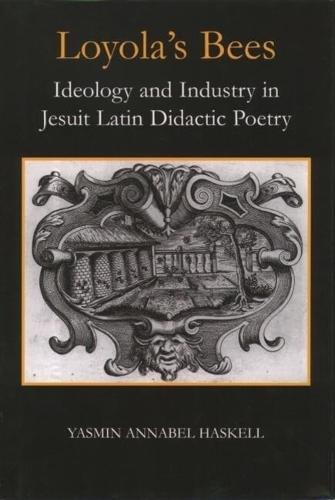Overview
From the Renaissance well into the eighteenth century hundreds of Latin poems, some running to tens of thousands of verses, were produced on subjects as multifarious as they were topical: meteorology and magnetism, raising chickens and children, the arts of sculpture and engraving, writing and conversation, the social and medicinal benefits of coffee and chocolate, the pious life and the urbane life. Loyola's Bees is the first full-length study of the Latin didactic poetry of the Society of Jesus, a Catholic Reformation order whose priests were the leading exponents of the genre in the early modern period. If post-Romantic readers have, in the main, lost the taste for a 'poetry of things', the poems in this book will command scholarly attention at least for what they reveal about early modern social, cultural, and intellectual life, Jesuit attitudes to the New World and the New Science, and the circulation of Latin literature in France and Italy in the seventeenth and eighteenth centuries. But modern readers will also be pleasantly surprised by their literary qualities. Often elegant, witty, and for all their enthusiastic engagement with contemporary events and inventions, self-consciously 'classical' in form, Jesuit didactic poems are a treasure waiting to be discovered by students of the classical tradition.Loyola's Bees is no mere descriptive survey, however. Haskell sets out to resolve the paradox of the crack troops of early modern Catholicism devoting so much time to the composition of Latin verse of a secular orientation. Poems on a wide and disparate range of subjects are analysed from the unifying perspective of Jesuit ideology, and Haskell articulates the ways in which the Society's distinctive brand of humanist pedagogy, together with its apostolic (world-directed) spiritual ethos, determined both the specific forms and vigorous fortune of the Latin didactic genre in the early modern period.
Full Product Details
Author: Yasmin Haskell (Cassamarca Foundation Associate Professor in Latin Humanism, University of Western Australia)
Publisher: Oxford University Press
Imprint: Oxford University Press
Dimensions:
Width: 16.30cm
, Height: 2.60cm
, Length: 24.20cm
Weight: 0.710kg
ISBN: 9780197262849
ISBN 10: 0197262848
Pages: 366
Publication Date: 11 September 2003
Audience:
Professional and scholarly
,
Professional & Vocational
Format: Hardback
Publisher's Status: Active
Availability: In Print

This item will be ordered in for you from one of our suppliers. Upon receipt, we will promptly dispatch it out to you. For in store availability, please contact us.
Reviews
What is especially valuable to non-classicists ... is Haskell's ability to explicate the innumerable quotations, imitations, and allusions that interlace the genre. Steven Harris, Early Science and Medicine An erudite, enlightening, and unique study of a body of literature historians of science have hitherto largely neglected. Steven Harris, Early Science and Medicine Professor Haskell's book is as valuable a contribution to history of early modern science as it is to her home field of neo-classical literature...Her characterization of [Jesuit education] is among the most concise, insightful, and cogent I have come across. Steven Harris, Early Science and Medicine ...this learned and comprehensive book...is a pioneering study of neo-Latin didactic poetry, and it has broken much new ground. The author clearly knows these poems very well, and her enthusiasm and learning come across on every page. Modern Language Review She has mined the rich prefatory and dedicatory material to reconstruct for the modern reader the intellectual and aesthetic ideals which underlie poetry of this type, and has brought the genre to life. The volume contains a full bibliography and a good index. Modern Language Review



